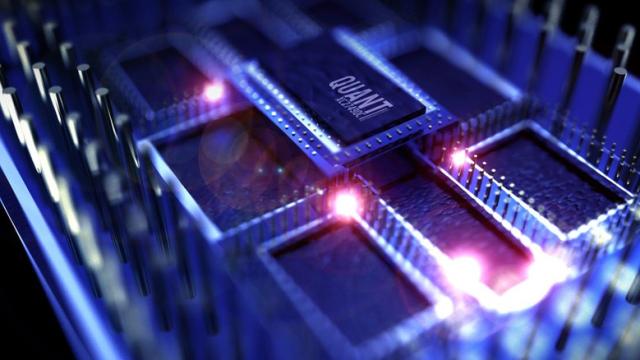Cooling modern-day computers is hard work: fans, heat sinks and even pumped liquid struggle to keep the temperatures of our hardware down. But how might we cool tomorrow’s computers — those powered using the strange and exotic power of quantum physics?
Fortunately, as well as trying to make quantum computing itself actually happen, there are researchers forward-thinking enough to be pondering the practicalities of how it will actually, you know, work in real life. And one of those mundane, yet incredibly vital, jobs is cooling.
Currently, quantum computers work at very low temperatures in order to keep noise and interference to a minimum. That’s OK right now, as they’re small things and all the cooling systems surrounding keeps them cold, but as they increase in size, they’re going to need the heat sucked away from where the action happens. And you can’t use a fan or water pumping, as that infrastructure alone will probably add more heat than it removes.
Enter Peter Nalbach, a theoretical physicist from the University of Hamburg in Germany. He’s just published his plan for a quantum cooling system that might solve the problem. In fact, he’s able to reduce the temperature of a quantum dot — the thing which acts as a quantum bit, or qubit, in a quantum computer — by half.
How does he do it? OK, so, imagine that the quantum bit is sat there, doing it’s quantum computer thing, gradually getting warmer. Nalbach has developed a system which places a tiny electromagnetic prong at either side of the dot, between which a stream of electrons flow — right over the top of the quantum dot.
Thing is, one prong produces electrons with an upward spin — that is, a real rotation — and the other is hungry for electrons, but ones with a downward spin. The electrons are drawn to the latter prong, but have to change spin direction to be accepted by it, and they do that by picking up a little energy, in the form of heat, from the quantum dot over which they’re passing. Bingo: the electrons are on their way, and heat is removed from the qubit.
It’s a neat trick, and could be used to great advantage in the future to cool the quantum computers we can so far only dream of. There’s one caveat though: quantum computer designs are still in their infancy, so it’s not clear that this set-up will be directly useful. But it’s sure great that someone’s thinking about it. [Physical Review Letters via Popular Mechanics]
Picture: welcomia/Shutterstock
